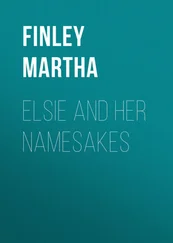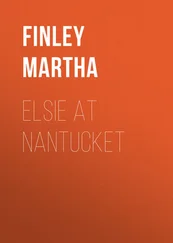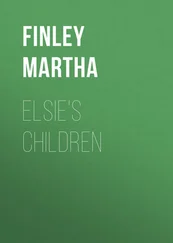"It is human nature to cling the tighter to anything another attempts to force from you; even though you may have felt ready enough to give it up of your own free will."
"Very true," said Travilla, "and Garrison and his crew would have been at better work repenting of their own sins, than denouncing those of their neighbors."
"But, papa, you don't think it can come to war, a civil war, in our dear country? the best land the sun shines on; and where there is none of the oppression that makes a wise man mad!"
"I fear it, daughter, I greatly fear it; but we will cast this care, as well as all others, upon Him who 'doeth according to His will, in the army of heaven and among the inhabitants of the earth.'"
What a winter of uncertainty and gloom to Americans, both at home and abroad, was that of 1860-'61. Each mail brought to our anxious friends in Naples news calculated to depress them more and more in view of the calamities that seemed to await their loved land.
State after State was seceding and seizing upon United States property within its limits—forts, arsenals, navy-yards, custom-houses, mints, ships, armories, and military stores—while the government at Washington remained inactive, doubtless fearing to precipitate the civil strife.
Still Mr. Travilla, Rose, and Elsie, like many lovers of the Union, both North and South, clung to the hope that war might yet be averted.
At length came the news of the formation of the Confederacy: Davis's election as its president; then of the firing upon the Star of the West, an unarmed vessel bearing troops and supplies to Fort Sumter.
"Well, the first gun has been fired," said Mr. Dinsmore, with a sigh, as he laid down the paper from which he had been reading the account.
"But perhaps it may be the only one, papa," remarked Elsie hopefully.
"I wish it may," replied her father, rising and beginning to pace to and fro, as was his wont when excited or disturbed.
The next news from America was looked for with intense anxiety. It was delayed longer than usual; and at length a heavy mail came, consisting of letters and Capers of various dates from the twelfth to the twentieth of April, and bringing news of the most exciting character in the fall of Fort Sumter: the call of the president for seventy-five thousand troops to defend the capital, the seizure of the United States armory at Harper's Ferry by the Confederates; the attack on the Massachusetts troops while passing through Baltimore, and lastly the seizure of Norfolk Navy-yard.
Dinner was just over at the villa, the family still chatting over the dessert, children and all in an unusually merry mood, when this mail was brought in by a servant, and handed to Mr. Dinsmore.
He promptly distributed it, took up the paper of the earliest date, and glancing over the headings, exclaimed, with a groan, "It has come!"
"What?" queried the others, in excited chorus.
"War! My country! oh, my country! Fort Sumter has fallen after a terrific bombardment of thirty-six hours." And he proceeded to read aloud the account of the engagement, the others listening in almost breathless silence.
"And they have dared to fire upon the flag! the emblem of our nationality, the symbol of Revolutionary glory; to tear it down and trample it in the dust!" cried Mr. Travilla, pushing back his chair in unwonted excitement; "shameful, shameful!"
Tears were rolling down Elsie's cheeks, and Rose's eyes were full.
"Let us adjourn to the library and learn together all these papers and letters can tell us," said Mr. Dinsmore, rising. "'Twill be better so; we shall need the support of each other's sympathy."
He led the way and the rest followed.
The papers were examined first, by the gentlemen, now the one and now the other reading an article aloud, the excitement and distress of all increasing with each item of intelligence in regard to public affairs. Rose and Elsie opened their letters, and now and then, in the short pauses of the reading, cast a hasty glance at their contents.
Elsie's were from her Aunt Adelaide, Walter, and Enna. Rose's from her mother, Richard, May, and Sophie.
The last seemed written in a state of distraction.
"Rose, Rose, I think I shall go crazy! my husband and his brothers have enlisted in the Confederate army. They, Harry especially, are furious at the North and full of fight; and I know my brothers at home will enlist on the other side; and what if they should meet and kill each other! Oh, dear! oh, dear! my heart is like to break!
"And what is it all about? I can't see that anybody's oppressed; but when I tell Harry so, he just laughs and says, 'No, we're not going to wait till they have time to rivet our chains,' 'But,' I say, 'I've had neither sight nor sound of chains; wait at least till you hear their clank.' Then he laughs again, but says soothingly, 'Never mind, little wife; don't distress yourself; the North won't fight; or if they do try it, will soon give it up,' But I know they won't give up: they wouldn't be Americans if they did.
"Arthur and Walter Dinsmore were here yesterday, and Arthur is worse than Harry a great deal; actually told me he wouldn't hesitate to shoot down any or all of my brothers, if he met them in Federal uniform. Walter is almost silent on the subject, and has not yet enlisted. Arthur taunted him with being for the Union, and said if he was quite sure of it he'd shoot him, or help hang him to the nearest tree.
"Oh, Rose! pray, pray that this dreadful war may be averted!"
Rose felt almost stunned with horror as she read; but her tears fell fast as she hurriedly perused the contents of the other three, learning from them that Richard, Harold, and Fred had already enlisted, and Edward would do the same should the war continue long.
"My heart is torn in two!" she cried, looking piteously up in her husband's face, with the tears streaming down her own.
"What is it, my darling?" he asked, coming to her and taking her cold hands in his.
"Oh my country! my country! My brothers, too—and yours! they are pitted against each other—have enlisted in the opposing armies. Oh, Horace, Horace! what ever shall we do?"
"God reigns, dearest; let that comfort you and all of us," he said, in moved tones. "It is dreadful, dreadful! Brothers, friends, neighbors, with hearts full of hatred and ready to imbrue their hands in each other's blood and for what? That a few ambitious, selfish, unscrupulous men may retain and increase their power; for this they are ready to shed the blood of tens of thousands of their own countrymen, and bring utter ruin upon our beautiful, sunny South."
"Oh, papa, surely not!" cried Elsie; "these papers say the war cannot last more than three months."
"They forget that it will be American against American. If it is over in three years, 'twill be shorter than I expect."
Elsie was weeping, scarcely less distressed than Rose.
"We will, at least, hope for better things, little wife," her husband said, drawing her to him with caressing motion. "What do your letters say?"
"They are full of the war; it is the all-absorbing theme with them, as with us. Aunt Adelaide's is very sad. Her heart clings to the South, as ours do; yet, like us, she has a strong love for the old Union.
"And she's very found of her husband, who, she says, is very strong for the Government; and then, besides her distress at the thought that he will enlist, her heart is torn with anguish because her brothers and his are in the opposing armies.
"Oh, Edward! isn't it terrible? Civil war in our dear land! So many whom we love on both sides!"
There was a moment of sorrowful silence. Then her father asked, "What does Enna say?"
"She is very bitter, papa: speaks with great contempt of the North; exults over the fall of Fort Sumter and the seizure of United States property; glories in the war-spirit of Dick and Arthur, and sneers at poor Walter because he is silent and sad, and declines, for the present at least, to take any part in the strife. Grandpa, she says, and his mother, too, are almost ready to turn him out of the house; for they are as hot secessionists as can be found anywhere.
Читать дальше












